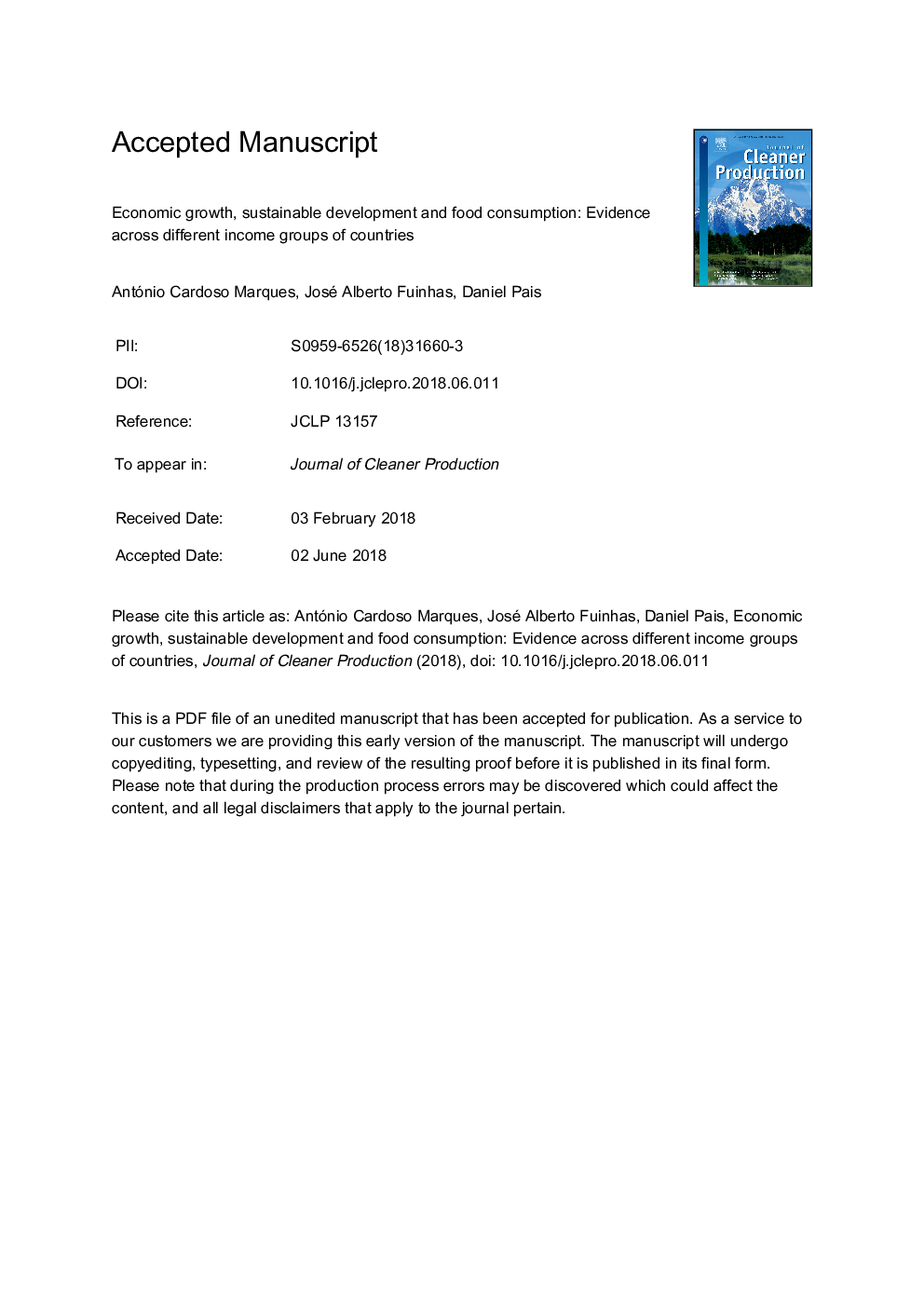| Article ID | Journal | Published Year | Pages | File Type |
|---|---|---|---|---|
| 8093775 | Journal of Cleaner Production | 2018 | 35 Pages |
Abstract
Considering that high population and income growths will lead the coming decades, an increase in global food demand is expected. Livestock products, such as meat, are closely related to this trend, but also associated with impacts on the environment and public health, from land and water depletion, to greenhouse gases emissions and higher risks of non-communicable diseases. This trend raises doubts about the sustainability of the food industry and thus a solution is needed for the problem. How to feed the world population without compromising present and future generations. The literature suggests that meat consumption should be reduced for the sake of the environment and global population, however without considering the effects that such reduction would have on the economy. Inspired by these facts, this paper empirically analyses the interactions between food consumption, economic growth and sustainable development (measured by the Index of Sustainable Economic Welfare). More specifically the paper assesses the effect that food consumption has on the economy. The econometric analysis applies the Autoregressive Distributed Lag model for 77 countries, further distinguished by their income group, from 1995 to 2013. The findings support that meat consumption has different impacts on economic growth and sustainable development considering different income groups. However, there is an evident dilemma between economic growth and sustainable development since meat consumption has contradictory effects on each. Thus, it is crucial to understand how to promote sustainability, i.e., reducing the environmental externalities and chronic health diseases, without compromising economic growth.
Related Topics
Physical Sciences and Engineering
Energy
Renewable Energy, Sustainability and the Environment
Authors
António Cardoso Marques, José Alberto Fuinhas, Daniel Francisco Pais,
